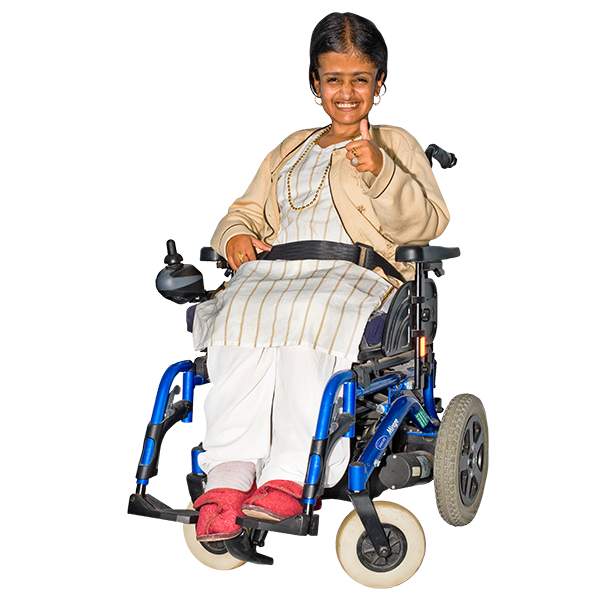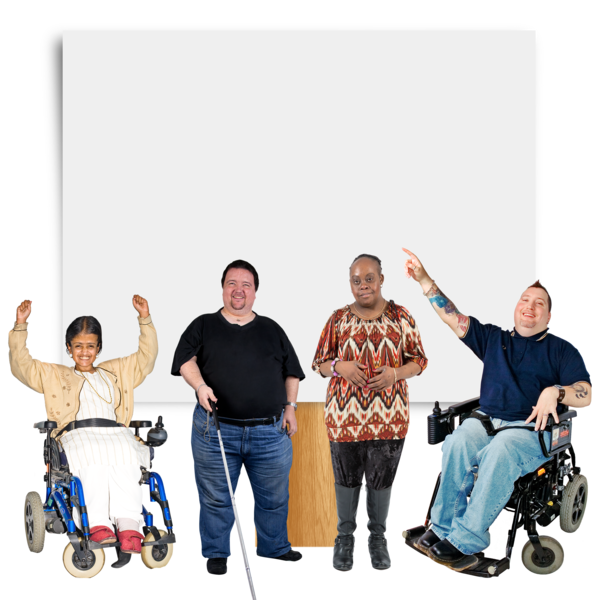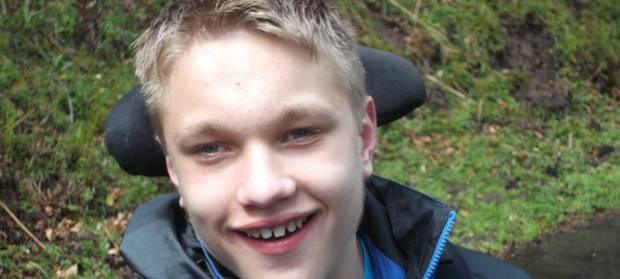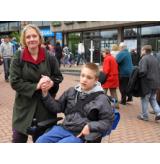A few weeks ago the Secretary of State for Work and Pensions, Iain Duncan Smith, referred to people without a disability as ‘normal’.
Jane Raca, whose son James has cerebral palsy,
autism
 Autism is a disability. Autistic people find it difficult to understand what other people think and feel. They also find it difficult to tell people what they think and feel. Everyone with autism is different.
and learning disabilities, considers the question: ‘are disabled people normal?’
Autism is a disability. Autistic people find it difficult to understand what other people think and feel. They also find it difficult to tell people what they think and feel. Everyone with autism is different.
and learning disabilities, considers the question: ‘are disabled people normal?’
A wonderful thing about the media is that it can break down barriers by enabling us to understand our common humanity, to get beyond initial impressions of being different. When I was 19, for example, I spent a year living in a Kenyan village, helping at the local school. This was 1982 and there was no electricity or running water. The roads were dirt tracks, with deep ruts carved out by vehicles during the rainy season.
I was returning with water from the well one day, when a tiny boy appeared, tottering along one of the ruts. When he saw me he stopped, transfixed. His eyes grew wide with terror, then filled with tears and finally he fled howling back to his mother. She explained that I was the first person he had ever met who had white skin. He had never seen anyone like me before.
Thirty years on that same boy, now a man, will have access to TV, and probably the internet. He will be used to seeing people from different cultures, with different hair and clothes, speaking different languages.
Once those barriers go down, what did not seem ‘normal’ before, becomes normal.
Unfortunately, the barriers around understanding people with disabilities are still too high. Too few of us are exposed to contact with, or images of, disabled people. We may be embarrassed to meet someone with a severe
physical disability
 A physical disability is to do with your body. You might find it hard to do some things like walk or lift things.
, because we have not seen that before. We don’t realise that someone in a wheelchair who has no speech and flails her arms, is perfectly capable of understanding what we are saying, and having a joke at our expense. Scope’s
campaign
A physical disability is to do with your body. You might find it hard to do some things like walk or lift things.
, because we have not seen that before. We don’t realise that someone in a wheelchair who has no speech and flails her arms, is perfectly capable of understanding what we are saying, and having a joke at our expense. Scope’s
campaign
 A campaign is when people work together to try to change something.
, ‘End the Awkward’ is doing great work to help this. But how often do we see people with cerebral palsy in the wider media, unless in a sombre documentary?
A campaign is when people work together to try to change something.
, ‘End the Awkward’ is doing great work to help this. But how often do we see people with cerebral palsy in the wider media, unless in a sombre documentary?
By comparison with the more enlightened portrayal of racial and cultural differences, portrayal of disability is only just beginning to emerge from the Middle Ages. The ‘N’ word is now completely taboo, both off screen and on, but we still hear about ‘spastics’ and ‘retards’. I complained to the BBC once when one of the surgeons in the soap Holby City, said in exasperation ‘This place is run by cretins’. (Cretin is derived from a medical term for children born with physical and learning disabilities, due to a deficiency in the thyroid gland.) The response to my complaint was that the writers of the drama had to represent society as it really was.
To people like me who have a family member with a learning or other disability (my son James has spastic cerebral palsy) these terms of abuse are truly horrendous.
They show that society sees our loved ones as an inferior group apart, when the reality is that they are just like everyone else. They have their own characters, foibles, skills, hobbies, likes, dislikes, flaws and strengths.
James is now 16 and has a great interest in the younger female carers who look after him. He bats his blue eyes at them and giggles. He has started to throw his cup on the floor so that they have to bend over to get it. He then sneaks a peek at their jean covered bottoms. There is no more difference between James and other teenagers, than there is between a boy who gets drunk at parties on Saturdays and one who stays home watching ‘Strictly’ with his parents.
As the BBC said, drama has to represent society as it really is .At the moment the media is failing to represent disabled people as they really are. I am attending Mencap’s Lord Rix lecture, which is bringing people together to discuss how we can challenge the portrayal of people with a
learning disability
 A learning disability is to do with the way someone's brain works. It makes it harder for someone to learn, understand or do things.
in the media. They explain in their invite that this is a portrayal that is rarely positive, a statement that, shamefully, is true.
A learning disability is to do with the way someone's brain works. It makes it harder for someone to learn, understand or do things.
in the media. They explain in their invite that this is a portrayal that is rarely positive, a statement that, shamefully, is true.
The title of this blog is ‘Are Disabled People Normal?’ The answer is that disabled people are the same as everybody else. They are at once both distinct individuals and common human beings. There really is no such thing as ‘normal’. It is the job of the media to start reflecting this more accurately.

 Jane Raca
Jane Raca